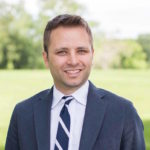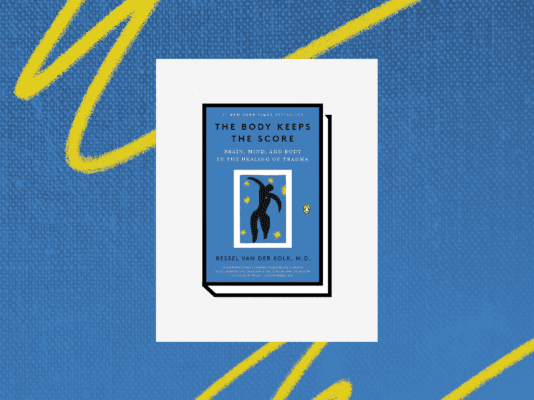People’s perception of Colson
Most people remember Chuck Colson for his involvement in Watergate and as Nixon’s “hatchet man.” As you explain in your book, this doesn’t entirely capture Chuck Colson, the man or his character, before his conversion. What is some background information that might help us understand Chuck Colson?
Chuck Colson was a complex and fascinating man. He lived several lives in his eight-plus decades. He was a “Swamp Yankee” from Boston, turned Harvard down out of spite to go to Brown, partied while at Brown before becoming interested in the military, became a Marine in the days of Chesty Puller, worked in a high-powered Naval procurement office, started and led a successful law practice, was a husband and father of three children, and built a connection with Nixon that led to his becoming Special Counsel to the President (1969-73).
Before his conversion, Colson was powerful, famous, wealthy, and proud. He was a workaholic. If Americans love winners, then Chuck Colson was at the head of the class. The man could not fail to achieve. But he drove himself–and those around him–hard. This had major consequences, not least because while he had an amazing external life filled with high-capacity performance, he had very little internal life. God was a far-off thought for Colson.
Conversion
Chuck Colson’s conversion to Christ occurred in the midst of the Watergate trial. You explain that its affect on him was immediate. You write, “conversion did not come quietly to Chuck Colson. This was a ‘Damascus Road’ experience.” How did Colson’s conversion affect his approach to the trial and prepare him for his time in prison?
Colson was implicated in Watergate in 1972 and 1973. He was not a mastermind of it, and in fact did not know of much of the corruption that came to light in that period. But Colson was a tough customer, and he had earned the name “Nixon’s Hatchet Man” for a reason. He used back-channeling, for example, to tar and feather Daniel Ellsberg, who leaked the Pentagon Papers. Colson was a man you did not want to cross.
But in the summer of 1973, all Colson’s defenses fell. He was getting pounded by the press, and he realized that he had indeed participated in the murky ethical deeds of the Nixon White House. He retreated to the Massachusetts coast for some reprieve, and talked with his friend Tom Phillips, then CEO of Raytheon, a major defense contractor. Phillips and Colson were similar: they were high-fliers. But Phillips had been converted not long before at a Billy Graham crusade, and he refused to let Colson make excuses for his trials. He called Colson to repent for his sins in a direct and somewhat-shocking manner. It was the Spirit of God moving in Colson’s life, because as soon as he left the house, he had to pull his car over. He saw that he was guilty, that Christ had died for him, and he repeatedly cried out in his car, Take me. He wasn’t blinded as Saul was, but his conversion was dramatic, to be sure.
He was called to go to prison just like Paul, too. He entered in 1974 and was released, seven months into a three-year sentence, in 1975. 2015 is the fortieth anniversary of his release, or as I like to call it, his unleashing.
Chuck Colson was not ruined by Watergate. He was ruined by the gospel of Jesus Christ, which hunted him like a hound of heaven and claimed him when he was at his most vulnerable.
Prison Fellowship/Friendship with Political Opponents
After serving his time in prison Chuck Colson could have written a tell-all book about the Nixon administration. Instead he wrote about his conversion. It was while writing this book that Colson began formulating his plan for prison ministry. You explain that in these early years Colson partnered with an unlikely friend- political opponent Senator Harold Hughes. Talk about their cooperation in the early years of the prison ministry and what believers can learn from their example.
Hughes and Colson basically hated one another. They were on opposite sides of the political aisle prior to Doug Coe of the Fellowship bringing them together in the same room shortly after Colson’s conversion. Hughes listened to Colson meekly tell his conversion story and saw that Colson was a changed man. He too was a hard-charging leader who had climbed the ladder to major success and influence. Hughes prized a straight-arrow approach to gospel witness. You didn’t mess around and sand things down. You preached the Bible, you believed it, and you acted on it.
This resonated deeply with Colson. The two men started a nascent prison ministry program, bringing in prisoners for spiritual instruction and personal rehabilitation. I loved this part of the research for the book, because there was nothing fancy about what Colson and Hughes did (which became Prison Fellowship in 1976). The two men did not care about proprieties; they brought prisoners to wood-paneled offices on Capitol Hill to put a face on inmates for Senators who had never met a convict. All this work quickly marshaled steam, and the two former foes had made a beginning that would eventually become the world’s largest prison ministry organization.
The Lord, as I say in The Colson Way, shows us over and over how he is not perplexed by brokenness, but loves to overcome it, and even put our sinful pasts to use in his kingdom work.
Theological Roots/Education
As he engaged in ministry, Colson knew that his grasp of Scripture was limited. He wanted a stronger spiritual foundation. Talk about the development of Colson’s theological roots and how his friendships with Christian thinkers and pastors impacted his later work in the areas of worldview and apologetics.
Colson learned from several thinkers, many of whom he discovered through Michael Cromartie’s influence. From R. C. Sproul, he learned the majestic sovereignty of God, and why a “God-centered” life is the only life worth living. From William Wilberforce, he found how to wed activism with Christian conviction. From Francis Schaeffer, he came to understand the importance of developing a “Christian worldview.” From Carl Henry, he gained precious insight into how theology and ethics reinforce one another. From Abraham Kuyper, he picked up a model for a Christian standing boldly in the public square, seeking not only recovery but transformation.
Each of these thinkers and leaders made a major mark on Colson. He sets a great example for modern Christians, who sometimes have been taught that it’s very nearly a virtue to not think and go deep in study of Scripture, theology, and ethics. It was in investing in his intellectual and theological development that Colson found the gunpowder necessary to make a stand for Christ in a fallen world.
Application questions:
The Colson Way
You write, “America is caught between allegiance to the first Great Awakening and allegiance to the Enlightenment.” In this context, how can we practice the “Colson Way” as we minister and seek to engage the culture?
Great question! We must do two things: play defense and play offense. We cannot simply bemoan cultural challenges to our faith. We’ve got to stand against them, expose them for what they are, but also much more actively promote a biblical vision of gospel flourishing. We hate evil, but we stand in the public square because of love, ultimately: love of God, and love of neighbor. The second flows out of the first.
Private v. Public Christianity
Chuck Colson believed in a public dimension to his faith. This is important, especially for the millennial generation who are constantly being told they need to keep their beliefs to themselves. How can Colson’s public engagement serve as a model for believers, especially millennials?
Colson engaged in both sacrificial activism and courageous proclamation. I believe that the two work hand-in-glove to propel Christian witness in a jaded, fallen world. If we only act but do not speak, then people won’t come to faith. If we only speak but do not act, the world will judge us hypocritical. What I love about Colson is that he did not focus on one to the exclusion of the other. He was both willing to act, and willing to speak.
Millennials need this model. They can go gun-shy in this noisy age. But a witness of Christ can neither shut their eyes to real suffering nor close their mouths and fail to speak hope and truth. They must do both. They find great joy in doing both, just as Colson did. He was not perfect, but he was faithful to this two-sided mission.
Role of Church
In engaging the culture, what should the public square witness of the church be? How can Augustine’s “City of Man” and “City of God” designations help Christians think through their dual citizenship?
Playing off of Augustine, in a fallen world, the church is a counter-culture. But we are not simply an alien people. We are the true culture, as Stanley Hauerwas famously said. The true culture, the City of God, must continually speak to the dying culture, the City of Man. But we must not assume that this will us the beauty pageant. We will have to stand against evil. We will have to stand firm against attack. We will have to stand down our own instincts to fight with the world’s weapons. The church is fearless and unflinching in the face of reproach.
But this does not mean that we contend for truth as the world contends for its beliefs. Even as we utterly refuse to stop speaking, and to stop promoting the good, true, and beautiful, we do not hate our neighbor, we do not seek their harm, we do not fail to remind that we of all people–including their allies–have the most reason to seek their good, for we know who they are: they are an image-bearer (Gen. 1:26-27), invested with full dignity and worth, an enchanted being formed by God. This, and not any other foundation–“rights” or “privileges” or anything else–grounds our advocacy on behalf of our fellow man, even those who oppose us.
Being a Witness
You conclude your book by discussing the concept of “witness.” Being a witness involves being contra mundum pro mundum “against the world, for the world.” Chuck Colson knew this better than anyone. How can understanding our identity as witnesses guide our own engagement?
We must know that we do not, at base, have an easy mission. We are in a real sense “against the world.” But this is not because we want it to burn. We want it to thrive. We are “for the world.” This is what I’m after in The Colson Way. I hope to do my very small part to reframe Christian engagement with a secular culture. I’ve studied Colson in great depth, and I hope that fellow believers can see that it is not enough to be only “for” something, and it is not enough to be “against” something. You must be both, with your positive vision of gospel flourishing taking precedence.
This formulation–against the world for the world–is not precisely biblical language. But I think it elegantly sums up the Christian public-square posture writ large. Here’s hoping it can be the next “in but not of,” which I think we’ve all heard our fair share of sermons about. I would challenge pastors to preach on this theme, or a related one. I would challenge lay Christians to act on it.
We all have a role to play. That’s what the story of Chuck Colson, and the story of countless ordinary folks in Scripture, says to the church today.










